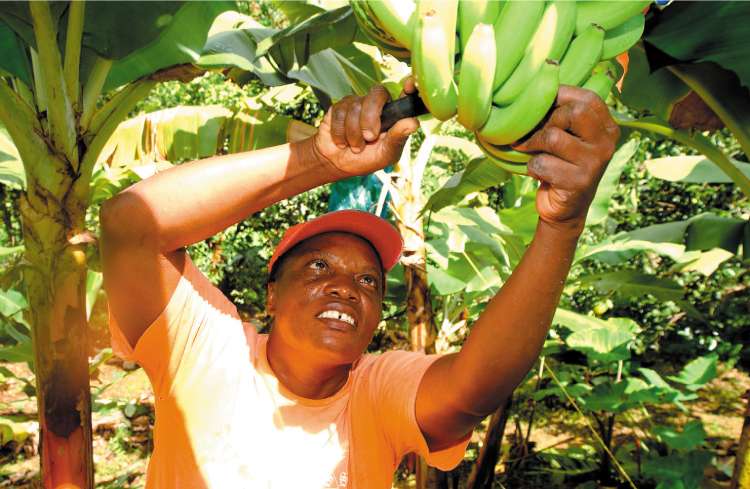UK leads Fairtrade shopping revolution as sales hit £560m

Your support helps us to tell the story
From reproductive rights to climate change to Big Tech, The Independent is on the ground when the story is developing. Whether it's investigating the financials of Elon Musk's pro-Trump PAC or producing our latest documentary, 'The A Word', which shines a light on the American women fighting for reproductive rights, we know how important it is to parse out the facts from the messaging.
At such a critical moment in US history, we need reporters on the ground. Your donation allows us to keep sending journalists to speak to both sides of the story.
The Independent is trusted by Americans across the entire political spectrum. And unlike many other quality news outlets, we choose not to lock Americans out of our reporting and analysis with paywalls. We believe quality journalism should be available to everyone, paid for by those who can afford it.
Your support makes all the difference.British consumers willing to pay more for ethical products are at the forefront of a global surge in fair trade, new figures reveal. UK sales jumped 72 per cent last year, from £325m to £560m, more than double the rise in Germany and France, according to the Fairtrade Foundation.
Britons bought almost 30 per cent of the world's total value of Fairtrade goods. Sales of bananas, coffee and tea have soared as Co-Op, Marks & Spencer and Sainsbury's made Fairtrade products their only option for some groceries.
Sainsbury's sells only Fairtrade bananas, Co-Op stocks only own-brand Fairtrade tea, coffee and chocolate and M&S does likewise for tea and coffee. Tesco and Asda also promote Fairtrade logo products.
Fairtrade pays farm co-ops both a guaranteed price above the world market and a "Fairtrade premium" to fund community projects.
Worldwide spending leapt 47 per cent, from £1.2bn to £1.8bn. The London-based foundation said 1.5 million producers and workers in 58 developing countries benefit from a higher price for their goods.
Sales of juices almost quadrupled, sugar and cotton doubled and bananas increased by 72 per cent. Coffee, one of the longest- established Fairtrade commodities, rose 19 per cent.
As the movement has spread to the corners of the globe, the range of Fairtrade products has expanded.
During the past year, Fairtrade Austria introduced fresh pineapples, organic mangoes and organic avocados. In Canada, ethical drinkers enjoy wine from South Africa. Fairtrade flowers were launched in Italy, Sweden and the USA. Australia, Austria, Germany, Italy and New Zealand sold their first Fairtrade cotton. By value, Fairtrade sales in the movement's biggest markets, the UK and US, grew 72 per cent and 46 per cent. Sweden and Norway logged the highest rises, of 166 per cent and 110 per cent.
"The phenomenal growth shows the groundswell of consumer support," said Rob Cameron, chief executive of the international umbrella body, the Fairtrade Labelling Organisation. "Fairtrade has come of age. For producers, it is the difference between surviving and an ability to invest and plan for the future."
Raymond Kimaro, chairman of the African Fairtrade Network, commented: "The increased sales are great news. The premium has enabled members to build new schools, provide clean water and improve their communities' health.
"However, some groups still sell just a small percentage of their produce to Fairtrade. It is crucial to grow the market so these producers can benefit more."
Join our commenting forum
Join thought-provoking conversations, follow other Independent readers and see their replies
Comments